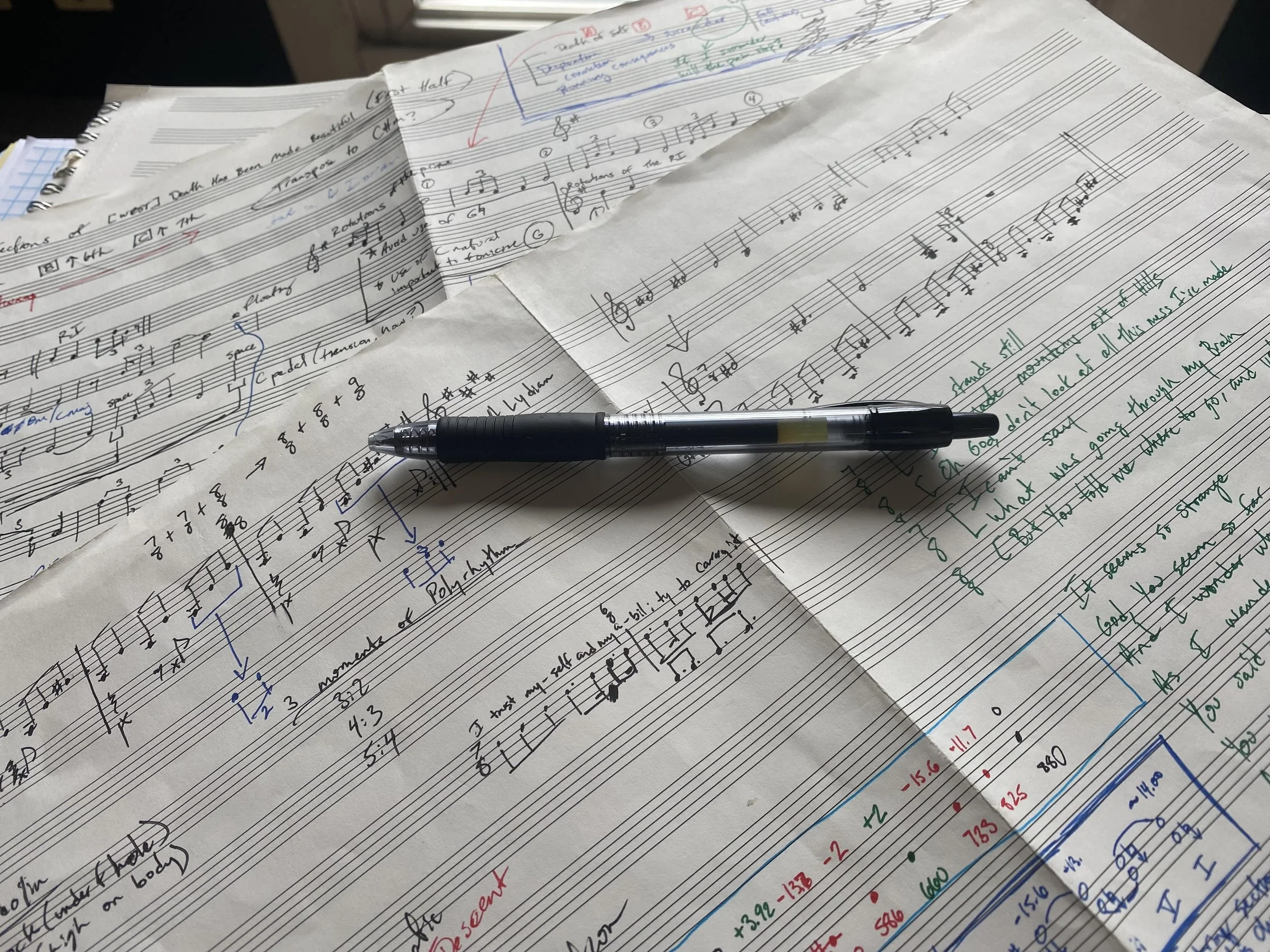
Starting a New Piece
I thought maybe I would share 3 strategies that helped me overcome writer’s block, and actually start this project.
I’m starting a brand new piece today. I’ve had this idea for a while, but it’s just been sitting in my notebook.
So, I thought maybe I would share 3 strategies that helped me overcome writer’s block, and actually start this project. I’ll be coming at this from a composer’s perspective, but I imagine these strategies probably would transfer to just about any creative endeavor.
1. Start with what you have
What’s in your sketchbook
That stuff you doodle on a napkin
Voice memos you made on your phone
Is there anything you’ve already thought of that can be the basis for your new project?
Are there multiple fragments in your sketchbook that could be combined for this project?
For this piece, I’m starting with a melodic fragment that I found in my notebook (and the concept of “home”, but more on starting with concepts in a little bit). Those little fragments can be expanded to create an entire piece. It does need to be the right fit though, so it’s helpful to have a notebook full of possibilities.
So, If you haven’t already, start a sketchbook/ideas notebook/Voice Memo Catalog. This can be great for starting projects, but it can be especially helpful for all of those times you’re working on something else, but you’ve got a really good but totally unrelated idea.
2. Start with a Story, an Emotion, or a Picture
Sometimes the story comes to me before any music does.
Pick an emotion, any emotion will do. Then brainstorm every single way to evoke that emotion in musical terms. I also like to ask what is the opposite of that emotion, which can give the piece a nice contrast.
Start with a picture in your head: How would you create that scene in music? How would this look in another artform? For example, how would my music look if it was a painting? What would this piece be as a film?
I’ve been pondering different ideas of “home” for a while, and I think that will be the basis for this piece. Perhaps each idea of home can be the basis for each movement, we’ll see. But, having that concept in mind allows me to then think about how to translate that to music.
3. Set a limitation
With literally every possibility sitting before you, it can be extremely intimidating to actually start down a path. All art requires a limitation, or it would never get made. If I just choose the instruments I’ll use, and the length of the piece, I’ve excluded a lot right there, right off the bat. This is really helpful, because you now no longer have to worry about the millions of possibilities you won’t pursue in this project.
I’m starting with cello, and piano, and I want it to be about 10 minutes long.
Take away something. What if you tried to write with no melody? I find this very helpful especially if you tend to do something all the time. I tend to focus too much on melody, so taking it away can really help you focus on other things and come up with something different. You can discover a lot of cool ideas when you are forced to do something different than usual. If you always write in G major with 4/4 time, force yourself to write in anything other than G major 4/4.
Start with a limiting concept. Like a piece built entirely on 3rds. Or, a unique scale to work with. Or, never use C#.
Hopefully, that gave you some piece motivation or inspiration for starting your next project. I should probably stop procrastinating and get back to writing.

